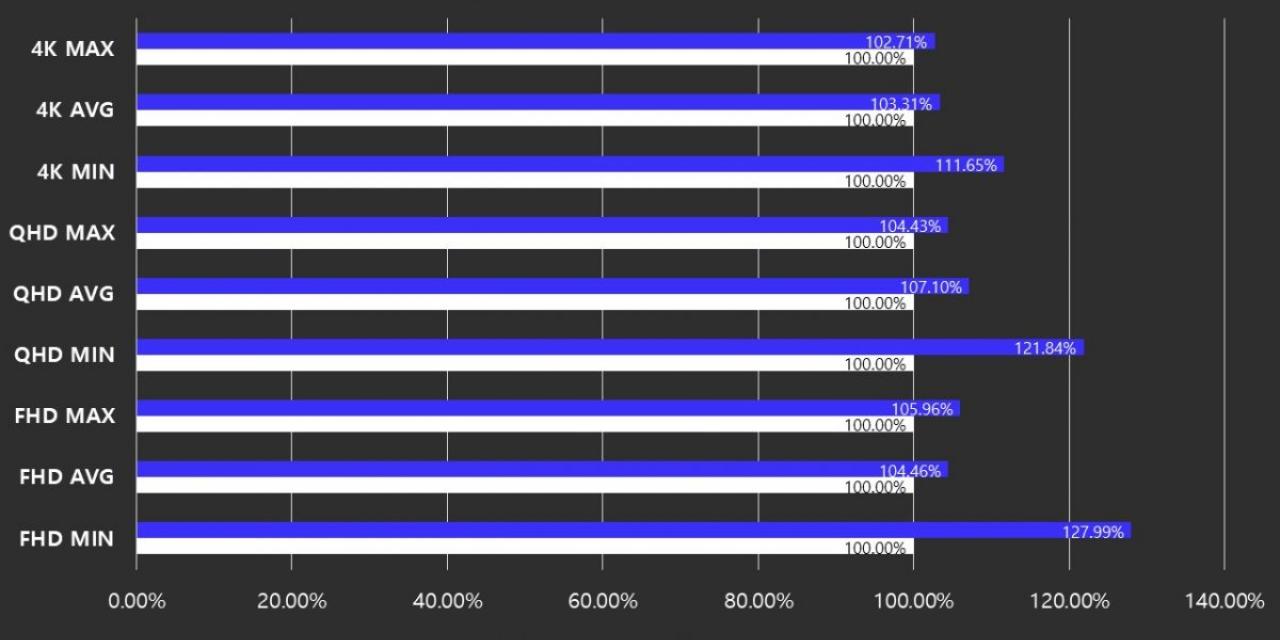
Intel's upcoming Core i9-13900K for its Raptor Lake generation of CPUs is shaping up to be a very capable chip, but it's not reinventing the wheel. It's a higher clocked 12900K with double the number of efficiency cores. That makes it an 8/16 CPU with a total of 32 threads and early benchmarks reflect what you might expect: Multi-core performance has taken a big leap, and single core performance is only marginally improved. What is surprising, however, is the effect this has on minimum frame rates in games: they've leapt by huge margins.
The Core i9-13900K will be able to hit 5.5GHz on its big cores, and with double the number of small cores, it's easy to see why multi-threaded performance has risen by around 30%. In gaming, the overall frame rates are only jumping up by around five percent, leaving a lot of room for AMD's Zen 4 CPUs to steal the performance crown at the top end. However, the 13900K's ability to boost minimum frame rates could be a game changer where stuttering is a problem. In many cases, minimum frame rates went up by between 20 and 80%, in some early benchmarks.
This effect happened across all resolutions and detail settings, too, suggesting that whatever's happened with the CPU here, is playing a big part in preventing frame rates from dipping so low. 4K performance wasn't as effected, but there was still a roughly 10% improvement across the board there. For 1080p, it was clost to 30%.
It's not a universal effect in every game, but Red Dead Redeption 2, Forza Horizon 5, and PuBG all saw big improvements to it, as per Videocardz.
One area that could be a problem for the 13900K, though, is power consumption. It pulled on average 20% more power than the 12900K when flat out. That's going to create some problems for anyone looking to cool this chip on anything but custom watercooling.
Look out for the 13900K to launch sometime this Fall.








